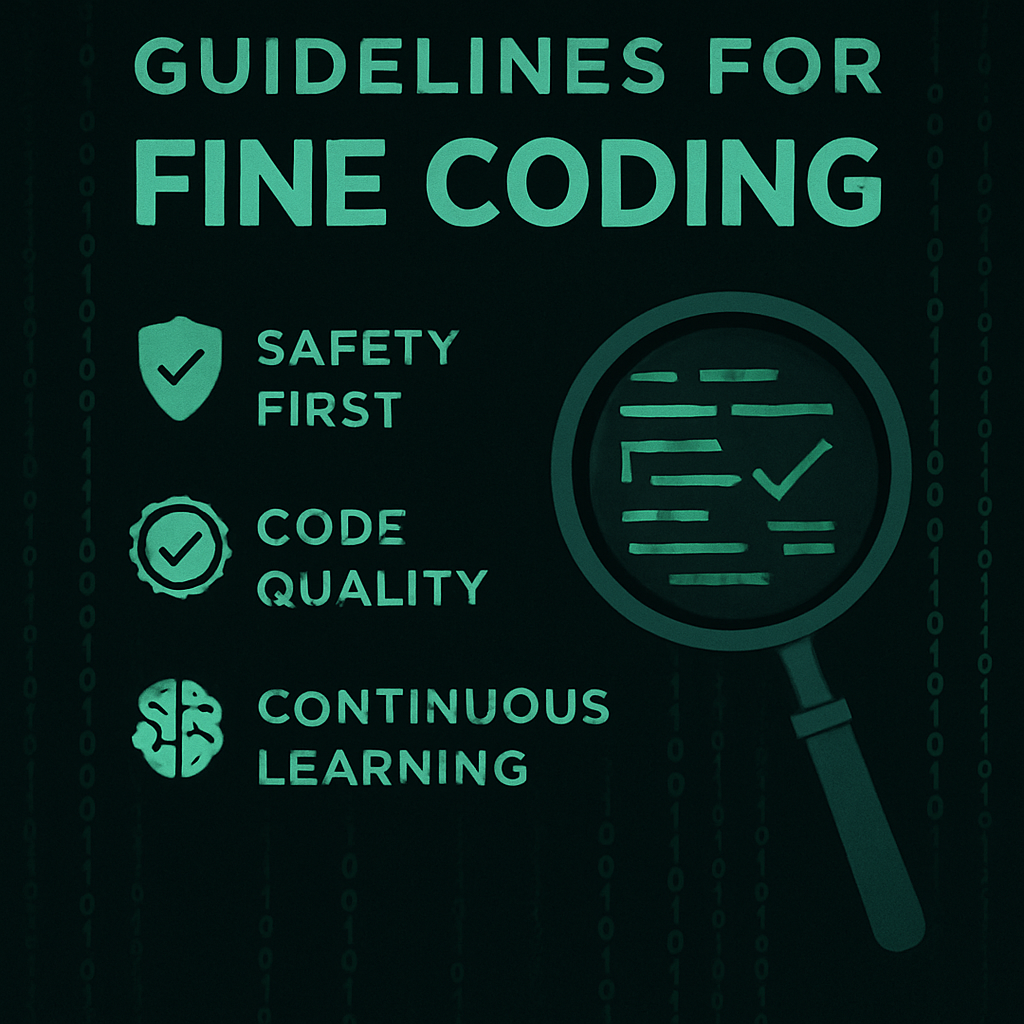Fine Coding Guidelines: Security, Quality, and Continuous Learning

Hello, Fine Coders! 👋
With the principles of Fine Coding in mind—Clarity, Efficiency, and Amplified Collaboration—it is crucial that we establish practical guidelines that will allow us to apply these concepts on a daily basis. These guidelines are the "how-to" of Fine Coding, ensuring that AI integration is done responsibly, safely, and effectively.
As AI becomes a central part of the development cycle, so does the need to ensure that its application is ethical, safe, and sustainable.
🔐 1. Safety First: Essential Human Validation
Security is a primary concern at Fine Coding. Although AI can generate code quickly, human validation is irreplaceable in ensuring the robustness and security of applications.
✅ Critical Review: Never blindly trust AI-generated code. Always perform a critical review, looking for vulnerabilities, logical bugs, and edge cases.
🧪 Comprehensive Testing: Implement a robust test suite (unit, integration, security) that includes specific scenarios for AI-generated code.
🛡️ Knowledge of Vulnerabilities: Stay up to date on common vulnerabilities in AI-generated code and how to mitigate them. Static (SAST) and dynamic (DAST) analysis tools are powerful allies.
✨ 2. Code Quality: Standardization and Readability
Fine Coding values code quality, regardless of its origin (human or AI). High-quality code is easier to maintain, scale, and collaborate on.
📏 Coding Standards: Maintain strict coding standards. AI-generated code should be adapted and formatted to align with team standards.
📝 Readability and Comments: Ensure that the code is readable and well commented. AI can help generate comments, but the clarity of human intent is paramount.
🔄 Continuous Refactoring: Use AI as a tool to assist in refactoring, but the final decision and execution should be guided by the developer.
🚀 3. Continuous Learning and Adaptation: The Evolution of Fine Coder
The AI landscape is constantly evolving. Fine Coder is committed to continuous learning and adaptation to new tools and methodologies.
🧪 Active Experimentation: Try out new AI tools, models, and prompting techniques. Understand their capabilities and limitations.
🤝 Knowledge Sharing: Share your findings and best practices with the team. Create a culture of collaborative learning about the use of AI.
🧠 Hybrid Skills Development: Invest in developing skills that combine traditional technical knowledge with proficiency in the use of AI tools.
By following these guidelines, Fine Coders can maximize the benefits of AI 🤖 while minimizing risks and ensuring the delivery of secure, high-quality, and sustainable software. 🚀✨
